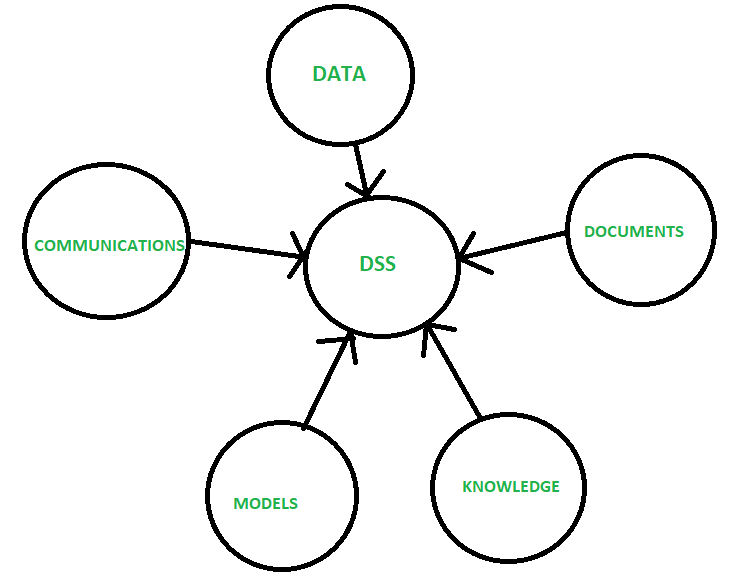1. 决策支持系统(DSS):
它是一个基于计算机的系统,可以帮助决策过程。它是一个交互式、灵活和适应性强的计算机系统。它专为支持解决非结构化管理问题以改进决策而开发。
DSS 是一类特定的计算机化信息系统,支持业务和组织决策活动。

好处 :
- 它可以节省时间。
- 提高效率
- 降低成本
- 它提高了个人效率
- 它增加了决策者的满意度。
缺点:
- 信息超载
- 状态降低
- 过分强调决策。
2. 专家系统:
它是一种旨在模拟决策者决策能力的计算机程序。
它组织了一组关于特定主题的知识。它包含事实和判断性知识,使其能够像人类一样进行猜测。它使用 if-else 结构做出决定的规则集。推理引擎通过操作知识库进行推理。用户界面向运算符表示问题和信息,并且还接收来自运算符的回答。

好处 :
- 成本降低
- 危险减少
- 增加可用性
- 表现
缺点:
- 如果数据输入不正确,可能会产生荒谬的错误。
- 在某些情况下不提供创造性的反应。
- 它依赖于规则和知识的正确性。
DSS和专家系统的区别:
| DSS | Expert System |
|---|---|
| It facilitates decision-making. | It automates decision-making. |
| The decision environment is unstructured. | The decision environment have structure. |
| It extracts or gains knowledge from a computer system. | Inject expert knowledge in to a computer system. |
| Characteristics of the problem domain is complex and broad. | In this, it is limited and specialised. |
| Type of data manipulation is numeric. | Type of data manipulation is symbolic. |
| It has limited capacity. | It has a full capacity. |
| It uses goals and system data to establish alternatives and outcomes, so a good decision can be made. | The expert system can eventually replace the human decision maker. |